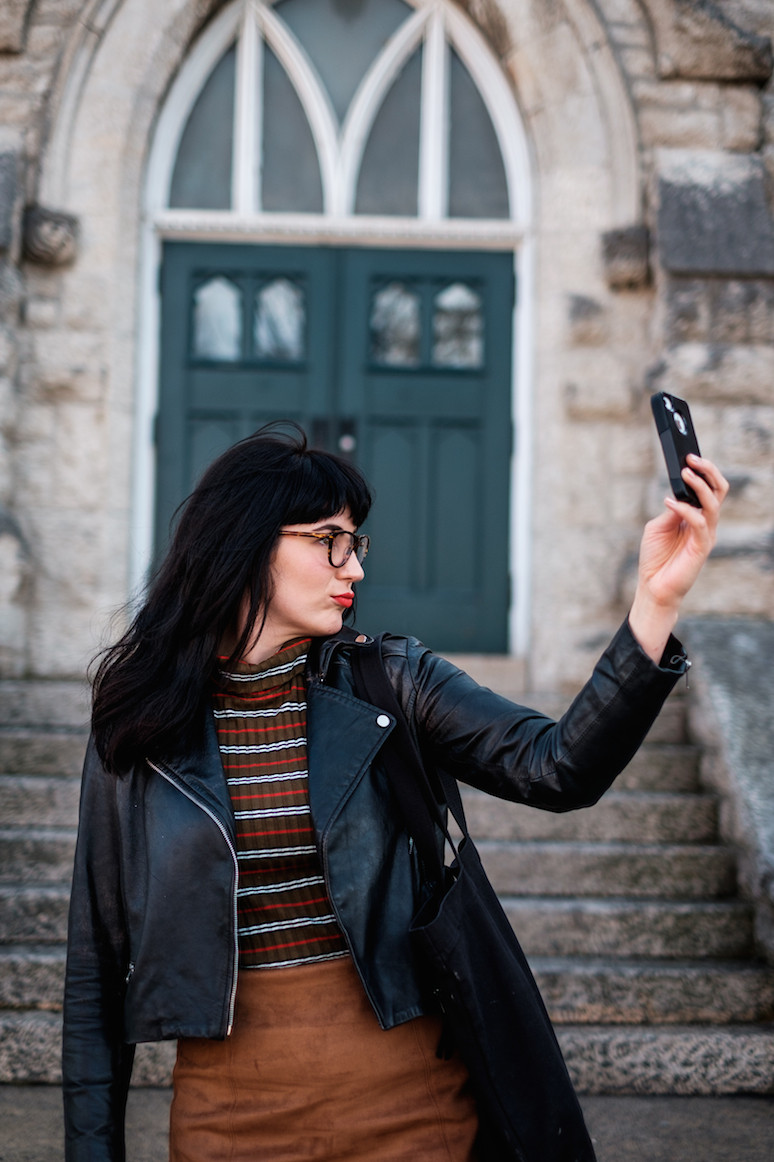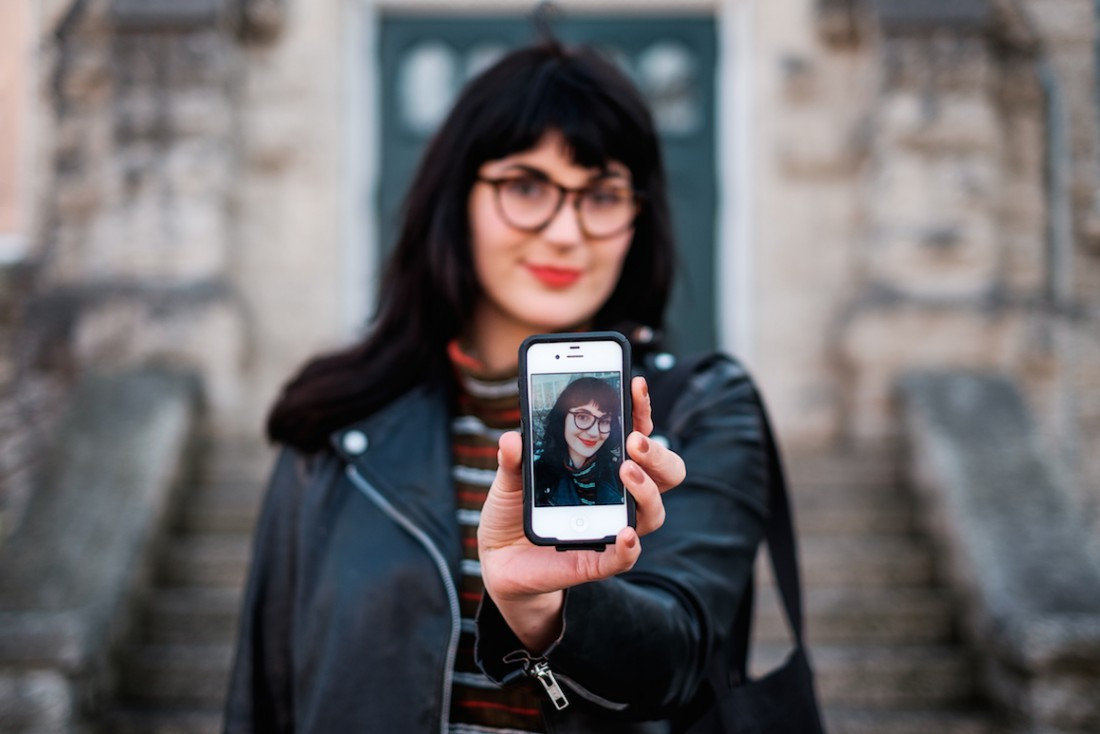Front facing
A look at selfies from every angle

The first phone with a front facing camera made its debut in 2003, revolutionizing the self portrait and giving the public control over how they are seen online (usually from a high angle).
“Selfies are the shit,” Teri Hofford, local photographer and body positivity advocate, says. “There’s nothing wrong with people waking up and feeling good about themselves. And we are more open online. I’m not going to walk up to someone and say ‘OMG your boobs are amazing! Emoji emoji emoji.’”
Selfies are often seen as an innocent, though frivolous, way for people to boost their confidence.
But Beth Schellenberg, a local artist and member of the Cartae Open School Program at aceartinc., wanted to dig deeper into this ever expanding culture.
She held a workshop through aceartinc. where participants could explore the topic and take a selfie of a different nature. Everyone sat in front of a mirror and drew themselves.
“I am really interested in how people self represent,” Schellenberg says. “What it means to our perceptions of ourselves… I thought it would be really fun to do a workshop on self identity.”
As a latecomer to social media, Schellenberg hasn’t known how to react to selfies.
“I feel pretty weird about them. I got my first smart phone about a year and a half ago and got Instagram right away because I felt like I had to. I felt very strange about putting an image of myself in a public forum and not really understanding why I was doing it.”
It is the motivation behind selfies that is the main cause of concern for Carole Cunningham, a local comedian.
“I don’t think (selfies) make women feel good about themselves. You are doing it for validation and affirmation, and it’s a false validation,” she says. “It takes people out of the present.”
Veronica Gingles has a different take on the matter.
As a trans woman, her selfies have been a way to mark her progress both physically and emotionally.
“I used to hate having my photo taken. I wasn’t comfortable with who I was,” she says. “When I started the transition, I took a photo and a year later did a comparison shot. A friend of mine said ‘The sadness in your eyes is gone’ and that’s what I’m seeing as I progress. A lot of people in the trans community use them because they’re finally themselves and they’re documenting those changes.”
In Schellenberg’s workshop, she asked that participants do a 30 day selfie ban, opting instead to draw one self portrait a day.
“There are various Instagram accounts that subvert societal norms, but Instagram generally reinforces the capitalist iconography of stereotypical beauty and wealth through the glorification of luxury goods and hot young people,” she says.
It’s unlikely that people will stop taking selfies in the near future. Whether they are a good or bad thing is best taken on a selfie-to-selfie basis, a conversation Schellenberg is excited to have.
“I feel endlessly grateful to be part of a community of curious, critical, forward thinking women,” she says.
Published in Volume 70, Number 25 of The Uniter (March 24, 2016)





